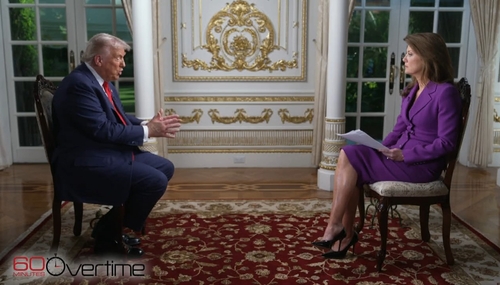
In a long-awaited report, the Senate Intelligence Committee today concluded that President Bush, Vice President Cheney and other top administration officials exaggerated and misrepresented the intelligence about Saddam Hussein and his possible connections to al Qaeda in making the case for war in Iraq. Most of the Republicans on the committee notably and sharply disagreed with some of the report's findings.
But Hiatt pointed out:
There's no question that the administration, and particularly Vice President Cheney, spoke with too much certainty at times and failed to anticipate or prepare the American people for the enormous undertaking in Iraq.
But dive into [Sen. Jay] Rockefeller's report, in search of where exactly President Bush lied about what his intelligence agencies were telling him about the threat posed by Saddam Hussein, and you may be surprised by what you find.
On Iraq's nuclear weapons program? The president's statements "were generally substantiated by intelligence community estimates."
On biological weapons, production capability and those infamous mobile laboratories? The president's statements "were substantiated by intelligence information."
On chemical weapons, then? "Substantiated by intelligence information."
On weapons of mass destruction overall (a separate section of the intelligence committee report)? "Generally substantiated by intelligence information." Delivery vehicles such as ballistic missiles? "Generally substantiated by available intelligence." Unmanned aerial vehicles that could be used to deliver WMDs? "Generally substantiated by intelligence information."
As you read through the report, you begin to think maybe you've mistakenly picked up the minority dissent. But, no, this is the Rockefeller indictment. So, you think, the smoking gun must appear in the section on Bush's claims about Saddam Hussein's alleged ties to terrorism.
But statements regarding Iraq's support for terrorist groups other than al-Qaeda "were substantiated by intelligence information." Statements that Iraq provided safe haven for Abu Musab al-Zarqawi and other terrorists with ties to al-Qaeda "were substantiated by the intelligence assessments," and statements regarding Iraq's contacts with al-Qaeda "were substantiated by intelligence information." The report is left to complain about "implications" and statements that "left the impression" that those contacts led to substantive Iraqi cooperation.
Hiatt concludes that the problem was not that Bush overstated the intelligence as much as the intelligence was so off-kilter, which is a danger for a president of either party. But Hiatt is left-wing enough to ignore that Democrats are especially reluctant to use military force, and so even if intelligence reports of threats were strongly worded, it might not spur any action. If President Gore had faced all this overdone intelligence on Iraq's capabilities, no one really believes he would have gone to war. It's even questionable whether President Gore would have done more to dislodge the Taliban in Afghanistan than President Clinton did.




